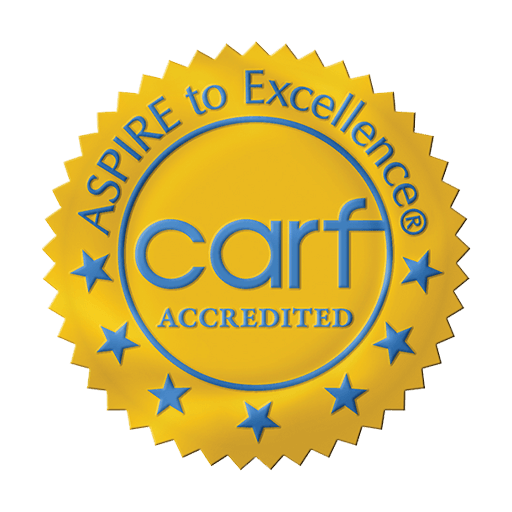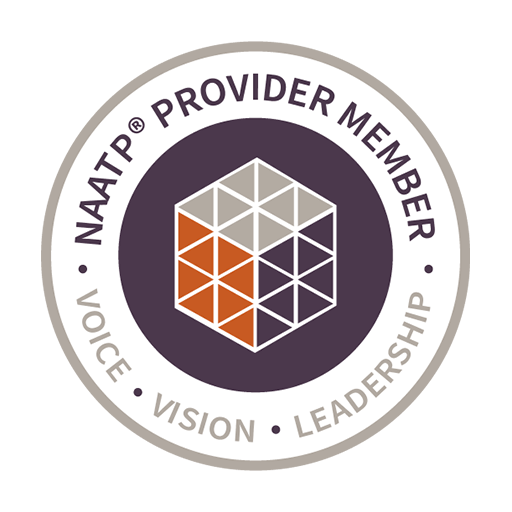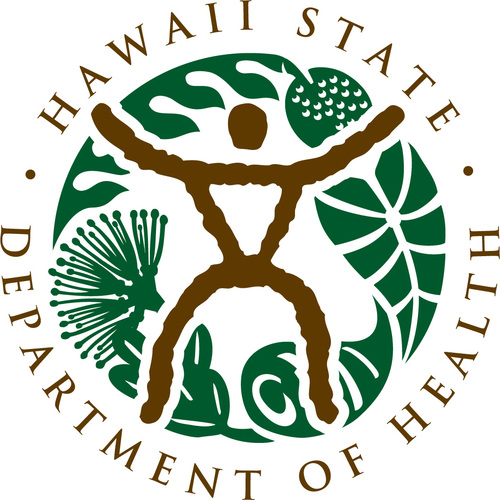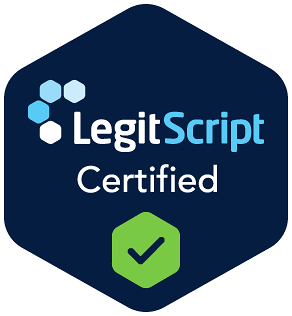MDMA Addiction Treatment and Therapy in Hawaii
Recovery from MDMA is possible with evidence-based treatment programs. Call Hawaii Island Recovery today at (866) 390-5070 to learn more.
Get Help Today
We Accept Most Major Insurances







Understanding MDMA Addiction and Its Impact
Addiction and substance use disorder (SUD) of any kind is a devastating disease that affects your physical, mental, and emotional health. However, addiction’s effects on your body and brain are only part of its overall impact, with just as much damage done to relationships, personal life, professional life, and much more. MDMA addiction can affect every part of daily life and can also be challenging to address. However, the comprehensive care, mental health professionals, healthcare, and therapy sessions available at Hawaii Island Recovery can help you take your first step in overcoming MDMA addiction in your life for a sustainable, drug-free future today.
What Is MDMA and How Does It Affect the Mind and Body?
MDMA (3,4-methylenedioxy-methamphetamine), also known as ecstasy or molly, is a stimulant psychedelic drug. While it is commonly a kind of party drug used in pill or capsule form, it can also take a crystalline form or a fine powder that can be snorted. The drug has intense effects on the body and brain, increasing heart rate and signals between the brain and body, and speeding up other natural processes, leading to changes in breath rate, energy levels, and more. It also has hallucinogenic effects similar to drugs containing psilocybin, changing sensory perception alongside these changes in energy and euphoric effects.
However, while some experience these euphoric effects, others may have much more negative experiences. Feelings of anxiety, depression, and paranoia are common when using MDMA, alongside confusion, cognitive impairment, and a plethora of effects on the body, like sweating and muscle tension. It can be impossible to predict exactly how a person will react to using MDMA, even in those who have used it before. Additionally, it can be impossible to know what MDMA may be cut with when buying street-level drugs, with other substances potentially being mixed in that can alter or worsen its destructive effects.
Short-Term Effects of MDMA Use
The immediate effects of MDMA use bring feelings of euphoria alongside audio, visual, and tactile hallucinations that can be both dangerous and unpredictable. However, there can be many more short-term effects of use. These include:
- Sudden bursts of energy and focus
- Changes in mood, especially feelings of euphoria
- Decrease in social inhibitions
- Anxiety
- Depression
- Paranoia
- Altered sensory perception
- Increased heart rate
- Intense sweating
- Grinding teeth
- Muscle tension
You or your loved one may not necessarily experience all of these symptoms when using MDMA or experience them the same way each time. However, there is no “safe” level of MDMA use, and these risks can become more pronounced at higher doses or prolonged use of MDMA.
There can also be intense, immediate dangers associated with MDMA use. MDMA can lead to a risk of severe dehydration or hyperthermia are possible, leading to additional health risks that may need medical attention to address. Compromised decision-making and cognitive function can also lead to high-risk situations, like driving under the influence.
Long-Term Effects of MDMA Addiction
The effects of MDMA addiction can persist long after the immediate effects of the drug wear off. Rather, substance abuse and addiction to MDMA can lead to many long-term effects. These effects include:
- Drug withdrawal when the effects of MDMA wear off or when the drug is not available
- Continued cognitive impairment, including difficulty focusing or recalling memories
- Decreased serotonin production
- Insomnia and nightmares
- Persistent mood and mental health disorders, such as anxiety, paranoia, depression, and anger
- Increased risk of heart disease
- Liver and kidney damage
- Major depressive disorder
However, there are likely additional risks to you or your loved one’s physical, emotional, and mental health as a result of MDMA addiction. MDMA is commonly cut with other drugs, including the dangerous drug fentanyl. Given the popularity of MDMA at parties, it can be difficult to know exactly what a person is using or who they are getting the drugs from when engaging with MDMA, leading to unforeseen consequences and additional health risks.
A Healing Experience that Transforms Mind, Body & Spirit

Recognizing the Signs of MDMA Addiction
MDMA addiction can be devastating to individuals as well as entire families. Recognizing the signs of MDMA addiction in yourself or a loved one is the first step toward finding effective treatment. Hawaii Island Recovery is always available to talk to you about the potential signs of addiction, as well as the treatment options available, to start your journey overcoming MDMA addiction today.
Some of the common signs of MDMA addiction include:
- Secretive behavior, such as locking doors or being secretive about where a person is going
- Frequenting party spaces, such as social parties with friends and strangers, or attending party events like raves and festivals
- Inability or unwillingness to tend to personal, professional, or academic responsibilities
- Sudden financial challenges
- Mood swings
- Inconsistent bursts of energy
- Increased feelings of anxiety, depression, paranoia, or shifting between these challenges
- Sudden changes in social groups
A loved one may also become incredibly defensive when the topic of drugs or their behavior is brought up, quickly turning to anger or irritation, even when not being directly accused of anything or interpreting questions about their use as personal attacks. Because of these effects, it can be difficult to address MDMA addiction and its effects on a loved one, as well as its impact on entire families. However, help is always available, and Hawaii Island Recovery can help you begin your healing journey together for comprehensive, effective, and sustainable treatment.
Identifying Addiction Even in Psychedelic-assisted Therapy
While MDMA can be dangerous and addictive, it has been used in dedicated mental health treatment and PTSD treatment. However, while some may benefit from this promising treatment, more clinical research and clinical trials are necessary to explore MDMA’s efficacy. The Food and Drug Administration has also listed MDMA as a breakthrough therapy to further drug development and studies, but has not yet granted FDA approval for MDMA in PTSD treatment.
However, even those considering this option are not immune to developing an addiction to MDMA, nor is it a replacement for other forms of psychiatry or talk therapy. MDMA can also worsen symptoms of PTSD, making this approach still unproven, especially outside the direct supervision of trained professionals.

Our 5-Step Admissions Process
Step 1: The Call
Our admissions team listens with care to understand your needs. We’ll guide you toward the right level of care — whether here or at another trusted facility — so you can take the next step with confidence.
Step 2: Insurance Verification
We work with most major insurance plans and verify your benefits at no cost. Our team explains coverage clearly and offers payment options so cost never delays getting help.
Step 3: Pre-Admission Screening
Step 4: Admission Coordination
Step 5: Welcome to Hawaii Island Recovery
The Importance of Comprehensive MDMA Addiction Treatment
Addressing Underlying Emotional Issues: The Need for Holistic Approaches
We also explore the connection between your emotional, mental, and physical health through exercise and physical healing options, as well as proper nutrition through our on-site chef, Chef Cheryl. These holistic care options and support can give you the energy needed to address difficult feelings and emotional needs and explore vulnerabilities throughout your holistic healing journey at Hawaii Island Recovery.

Our Specialized MDMA Addiction Rehab Programs at Hawaii Island Recovery
No two journeys overcoming substance abuse or MDMA addiction will be the same. Our dedicated MDMA addiction treatment programs can be customized to fit your unique needs, goals, and experiences in rehab for sustainable change. Addressing the effects of MDMA alongside mental health needs, emotional challenges, trauma, and more is all part of your personalized healing journey, with specialized options each step of the way, from your first step into our medical detox program through residential and ongoing outpatient care.
Personalized Treatment Plans for Recovery
Each of our personalized MDMA treatment programs comes with a variety of options and amenities for you to explore your developing sober identity and best practices. From a safe environment to unique experiences that highlight the healing potential of the Big Island of Hawaii, there are always new strategies to try with us.
Safe Environment
Confronting addiction is difficult, and the feelings of vulnerability that come with discussing addiction and exploring change can be a major barrier. We curate a safe environment within our walls to empower you to explore your personal needs while feeling supported. A judgment-free space, coupled with a dedicated sober atmosphere and an acceptance of personal challenges and camaraderie, creates an effective and inviting atmosphere of support.
Many of our staff have navigated the challenges of overcoming addiction themselves, taking an intimate, sympathetic approach to acceptance in our walls. We are committed to ensuring that you feel safe discussing vulnerable topics in a stress-free environment so you can focus first on your healing.
Initial Detox Program
Detox is the first step of any effective rehab program. This phase of treatment is when withdrawal symptoms from MDMA addiction can be at their most intense, along with the emotional challenges that come with this time of change. Our detox program provides medical care and 24/7 supervision to ensure your safety and success during this time, with programs lasting up to two weeks.
Detox is crucial for expelling all traces of dangerous substances, from MDMA to other drugs, like alcohol or cannabis, that may be used alongside MDMA, ensuring your first step towards a sober life is truly transformative.
Experiential Programming
We also offer many effective and unique experiential therapy options during your time with us. Hawaii Island Recovery combines experiential therapy options with the natural advantages of the Hawaiian island, embracing the natural flora and fauna to explore the healing energies of Hawaii. Nature walks, planting native tree species, and oceanic healing options like swimming with dolphins, snorkeling, surfing, and much more are all part of a comprehensive healing journey.
We also work closely with local cultural outreach programs to explore the native culture of Hawaii, embracing the spirit of aloha that permeates our treatment programs and the communities of the island itself to explore acceptance, belonging, and camaraderie. Each of these new experiences can come with new perspectives and spiritual and emotional healing opportunities that can truly transform your daily life in sobriety.
Transition Safely Through Appropriate Levels of Care
Transitioning between detox, residential, and outpatient care can be challenging. While you should be proud of your ability to reach these important milestones, transitioning between these levels of care also comes with new stresses, as well as increasing personal responsibility and accountability throughout your healing journey. However, you are never without support during any step of your recovery.
Our dedicated professionals work with you to create a plan to navigate these levels of care backed by personal support and effective relapse prevention strategies. Even after graduating from our residential treatment program and returning to daily life outside of the curated sober facility, we continue to provide outpatient support and virtual care options. We are always just one call away to help you explore new challenges or share in triumphs as you reach even greater milestones in your successful sobriety.
The Benefits of Our MDMA Addiction Treatment in Hawaii
We address addiction as a comprehensive disease, treating the whole person, not just a collection of symptoms of MDMA addiction. This includes confronting trauma and anxiety alongside MDMA addiction and exploring how they can continue to inform each other about sobriety.
We also offer a sympathetic community of understanding and acceptance. Building trust with peers and professionals and learning to trust in yourself are all parts of a successful healing journey. Our program also highlights the role that peer support has in your healing journey. We also offer dedicated family therapy programs to educate family members on the effects of addiction, develop communication strategies, and explore forgiveness, understanding, and change at home for healing for all family members. This includes education for supports, learning to support their loved ones while tending to their personal needs and goals.
Our professional approach to MDMA treatment combines effective, evidence-based care with the natural advantages and spirit of healing in Hawaii. MDMA addiction can be difficult to overcome or even confront in the first place. Hawaii Island Recovery’s unique approach to change and acceptance, backed by a community of peers and a small, eight-person residential facility, ensures that you have the support, education, and opportunities to become the catalyst of your sober change.
Our doors are open to anyone ready to put in the hard work to overcome MDMA addiction, whether you are living in Hawaii, Honolulu, or Kailua-Kona, or coming from the continental states to explore a new approach to MDMA therapy in Hawaii.

 Hawaii Island Recovery
Hawaii Island Recovery 





















